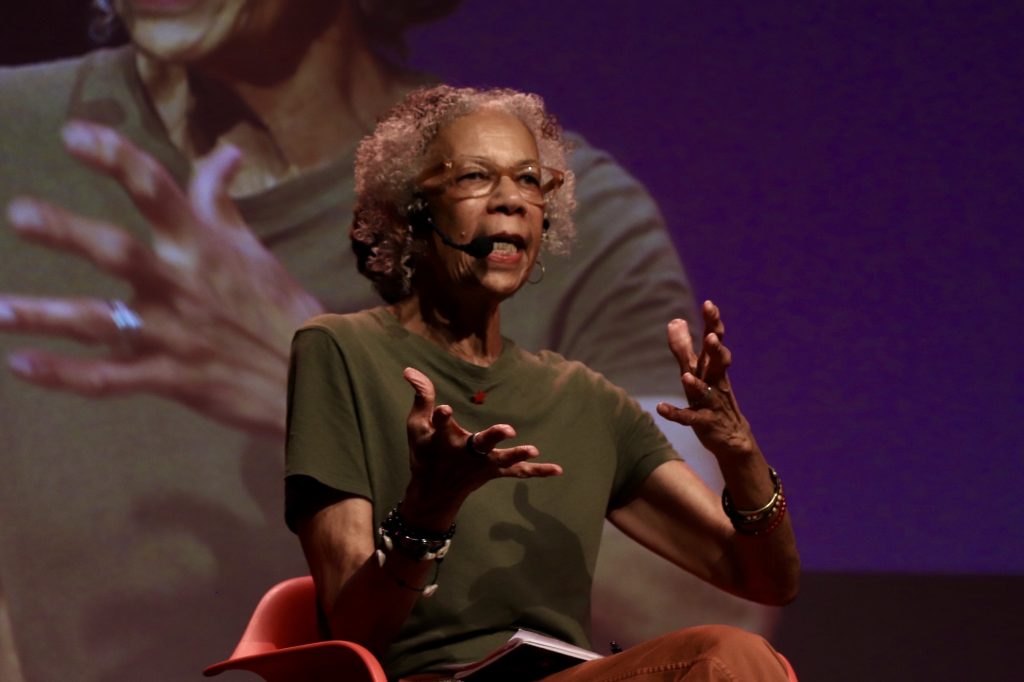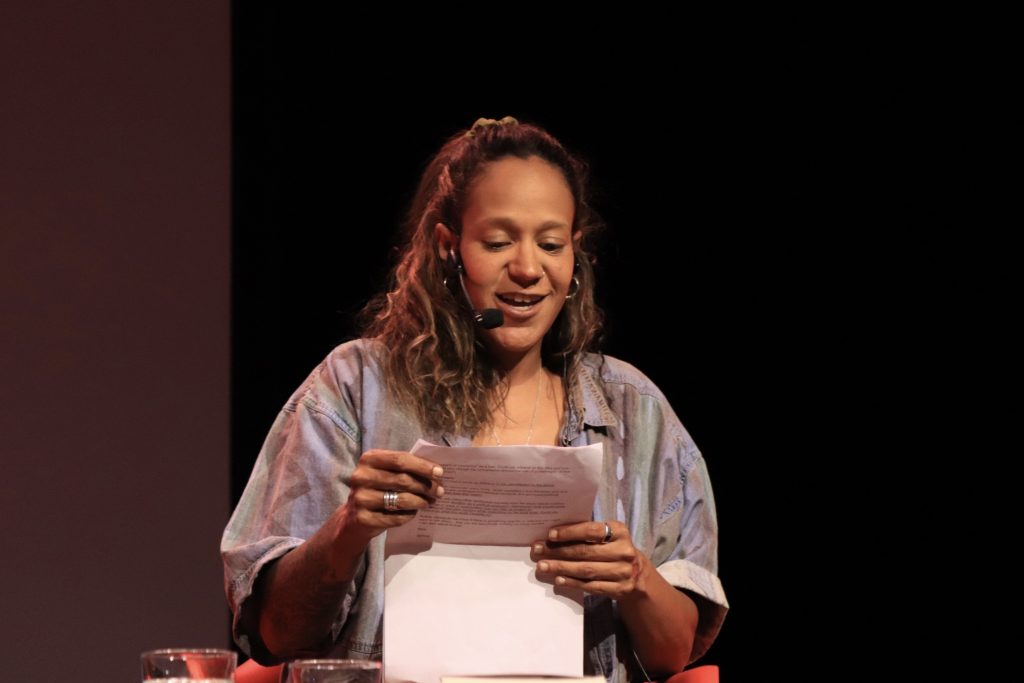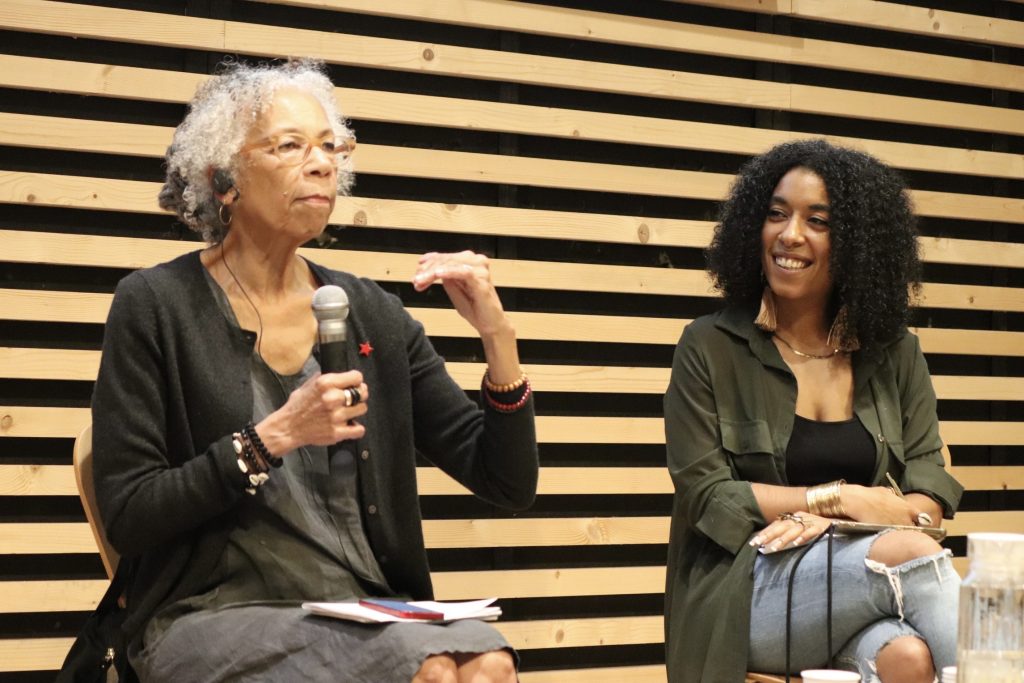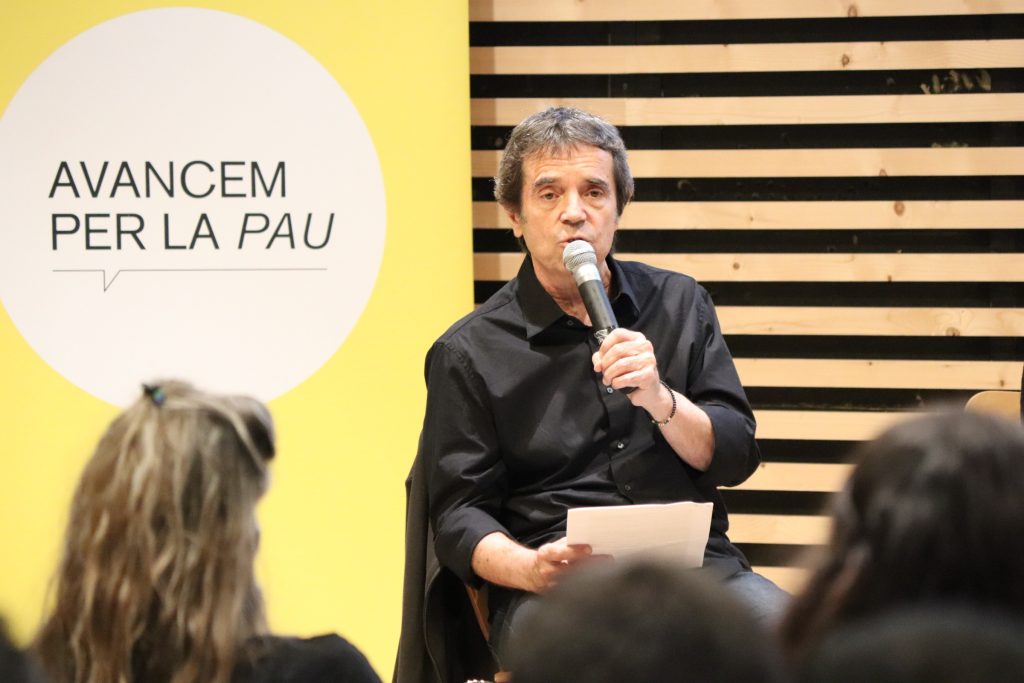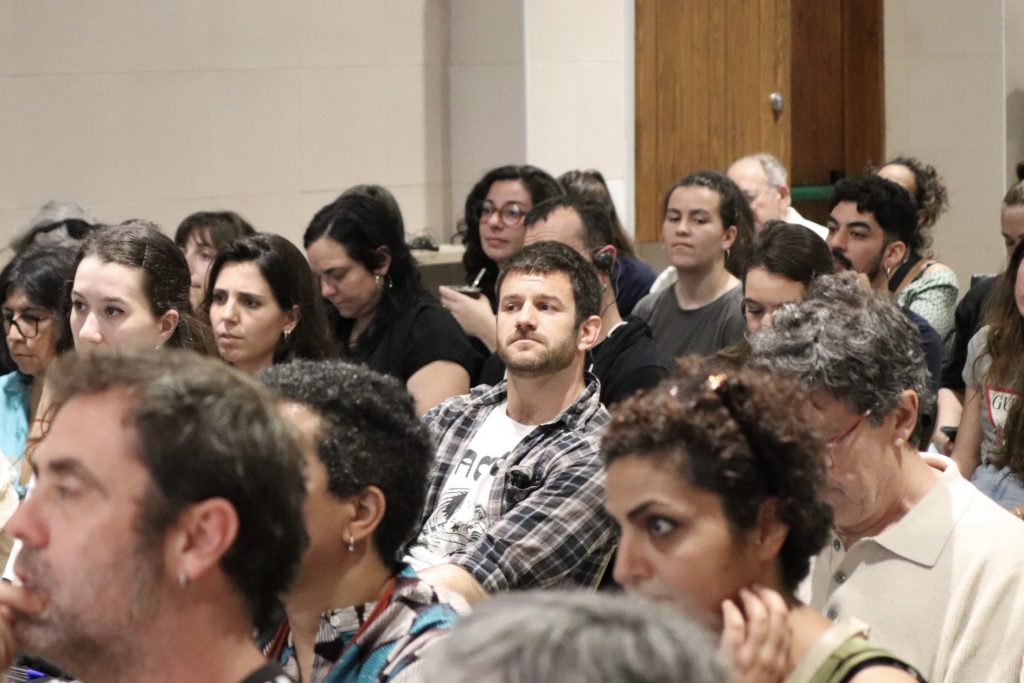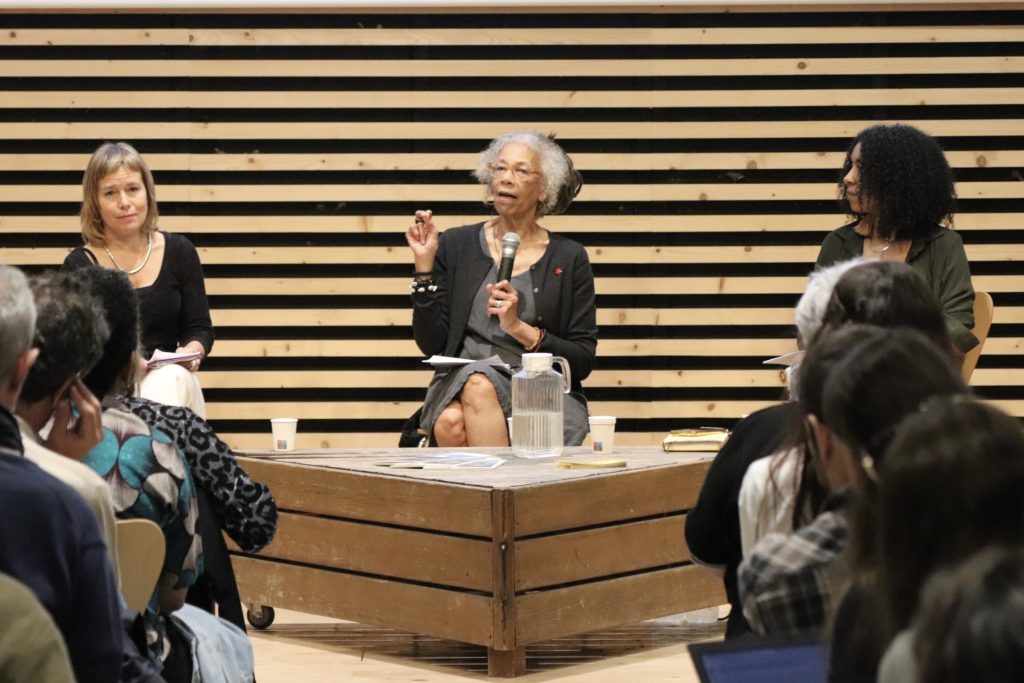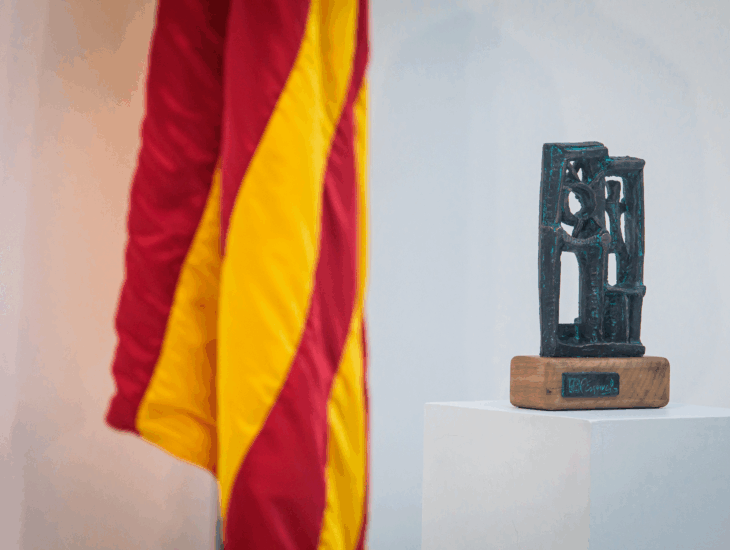On May 25 and 26, the ICIP hosted two events featuring geographer and activist Ruth Wilson Gilmore, one of the most prominent voices in contemporary abolitionist thought. Throughout her talks in Barcelona, Gilmore addressed the structural limitations of the penal system and advocated for abolition as a collective practice focused on repairing harm and building more just, supportive, and violence-free societies.
Sunday, May 25 – Literal Fair
Under the title “Abolishing the Punishment Industry: Challenges and Political Practices for Emancipation,” the first session took place at the Literal Fair and was facilitated by researcher Ainhoa Nadia Douhaibi. Gilmore presented some of the core ideas of her work, such as the notion of abolition as “emancipation in rehearsal”—a constant process of creating spaces of freedom and transformative relationships.
She also analysed what she calls the “prison industrial complex,” highlighting how the penal system efficiently organises state resources (land, labour, capital, and authority) to contain populations and reproduce inequality. This model prioritises repression and punishment over essential services, especially in contexts marked by austerity and budget cuts.
For Gilmore, freedom is a place built collectively, and abolitionist work is not only about eliminating prisons but about creating real, sustainable alternatives rooted in care, community accountability, and restorative justice.
Monday, May 26 – La Model
The second gathering took place in the auditorium of La Model, a venue with deep symbolic significance. Under the title “Security and Justice: Alternative Models to Punitive Systems,” the session was facilitated by Afrofeminist activist Basha Changue and featured contributions from Áurea Martín (Tanquem els CIE), Iñaki Rivera (University of Barcelona), and criminal lawyer Laia Serra. ICIP director Kristian Herbolzheimer and the Ombudswoman of Catalonia, Esther Giménez-Salinas, officially opened the event.
Gilmore emphasized that abolition is a model—not a distant horizon—and advocated for a grassroots internationalism that connects diverse struggles and fosters solidarity among people and collectives resisting across the world. She outlined three imperatives for abolition: it must be green (sustainable), red (against racial capitalism), and internationalist (connected and plural).
Throughout the dialogue, participants also reflected on the challenges and contradictions of using legal tools strategically within abolitionist movements, highlighting that collective responses to violence must go beyond punishment and promote community-based approaches to conflict resolution and healing.
A vision rooted in community and transformation
With a trajectory that bridges academia and activism, Ruth Wilson Gilmore is a co-founder of collectives such as Critical Resistance and INCITE!, and the author of works like Golden Gulag and Abolition Geography.
Her visit to Barcelona, organised by the ICIP’s Alternatives for Security programme, offered a unique opportunity to open spaces for collective reflection on how to rethink security, justice, and freedom from a transformative, non-punitive, and community-rooted perspective. This approach aligns with the ICIP’s work in promoting security models rooted in peacebuilding, the protection of rights, and the eradication of all forms of structural violence.
